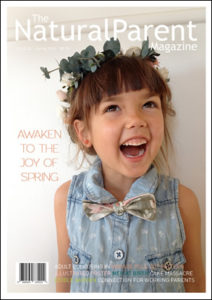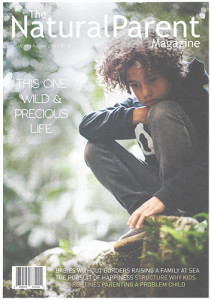NOTE: Some also have pdf and/or audio versions available—click through and you’ll find links to any additional formats at the top.
 Helping Kids Find Their Passion
Helping Kids Find Their Passion
Following our children’s interests and passions is one of the biggest joys of unschooling. In this talk, I explore what that might look like and how keeping an open and curious mindset can help us all enjoy the adventure.
This talk was presented at the Canadian Online Homeschool Conference, 2022.
Unschooling Through the Teen Years
We may have been unschooling pretty comfortably for years, connecting with our kids, having fun, actively supporting them as they pursue their interests, but then our eldest approaches the teen years and all of a sudden we start to feel a bit uncomfortable. We begin to worry. Is unschooling going to work through the teen years?
This talk was presented at the Canadian Online Homeschool Conference, 2021.
 The Value of Relationships to Learning
The Value of Relationships to Learning
In this talk, I explore why connected and trusting relationships with our children lie at the heart of their learning.
This talk was presented at the Canadian Online Homeschool Conference, 2018.
 Time and the Wild Landscape of Unschooling
Time and the Wild Landscape of Unschooling
In this essay, I dive into some of the beautiful ways that free time weaves through our unschooling lives and helps our children stay in touch with their wildness.
This essay was first published in Rosemary Magazine, Winter 2019 issue, theme: “wildschool.”

Toronto Life Memoir: School’s Out
When my 10-year-old was having trouble in class, I tried everything to help him. Then I discovered the unscheduled, undisciplined, unstructured world of unschooling.
Unschooled kids wake up when they’re ready, choose what to do during the day, eat when they’re hungry and go to sleep when they’re tired.
This memoir essay was published in Toronto Life magazine, in the March 2016 print issue, and online here.
 Growing Up Unschooling
Growing Up Unschooling
In my years of experience with unschooling, I’ve come to see some pretty consistent traits that grow when they are steeped in the supportive and engaged lifestyle of unschooling, such as self-awareness and trust in themselves.
This article was first published in The Natural Parent Magazine, issue 24.
 Why Not Yes?
Why Not Yes?
[ en español: ¿Por qué no un Si? ]
I think YES may be my most favourite word—it just screams engagement in the moment. It says, “I am here!” There are so many amazing things that can happen when we say yes. And that definitely includes when we say yes to our children—always an opportunity for connection. And fun!
This article was first published in The Natural Parent Magazine, issue 22.
 The Timetable of Learning
The Timetable of Learning
[ en español: El Horario del Aprendizaje ]
Much is made about the building blocks of learning, A to B to C. Yet in real life, learning doesn’t often happen at such a steady pace, nor in a set order. So why are we so attached to curriculum as the definitive timetable of learning for children?
This article was first published in The Natural Parent Magazine, issue 20.
 Finding Patience
Finding Patience
[ en español: Encontrando Paciencia ]
Real learning is messy. Sometimes learning connections happen quickly, like dominoes falling, one after another after another. Other times, persistence is the name of the game. Sometimes there’s lots of talking: questions and answers and theories. Other times, intense concentration demands silence. The beauty of unschooling is that the only pace and style that matters is the child’s.
This article was first published in The Natural Parent Magazine, issue 19.
 Nurturing Curiosity
Nurturing Curiosity
[ en español: Alentando la Curiosidad ]
Human beings are wired to be curious. From the youngest age, children are driven to explore the world around them and figure out how it works. And then they can walk and life starts to get messier than just a dirty diaper. A child’s insatiable curiosity to engage with life doesn’t fade, unless the adults in the child’s life actively discourage it.
This article was first published in The Natural Parent Magazine, issue 18.
Cultivating Creativity
Human beings are wired to be curious. From the youngest age, children are driven to explore the world around them and figure out how it works. And then they can walk and life starts to get messier than just a dirty diaper. A child’s insatiable curiosity to engage with life doesn’t fade, unless the adults in the child’s life actively discourage it.
This article was first published in The Natural Parent Magazine, issue 17.
Choosing to Quit
[ en español: Eligiendo Renunciar ]
Coaxing children out the door to get to their baseball practice or swimming lesson is practically a rite of passage for today’s parents. There are lots of reasons kids find organized recreational activities fun: they enjoy the sport or activity itself; the time spent with friends; the satisfaction of improvement etc. But that’s not always the case.
This article was first published in The Natural Parent Magazine, issue 15.
Spinning a Web: The Art of Learning
With unschooling, learning often looks very different than what we’ve been taught to expect, so it can take a while to recognize it in action. And then it takes time to figure out how, as unschooling parents, we can actively support it. First, we’ll take a look at the conventional approach to learning so we can compare it to unschooling and better understand the differences. Then we’ll talk about three ways we can support and encourage our children’s learning through unschooling, namely by: being open, being patient, and being brave. And then we weave it all together into a wonderful a-ha moment, after which unschooling really starts to shine!
This talk was presented at various unschooling conferences in 2014.
Curious and Engaged
Our conventional society honours learning deeply, yet its definition has steadily narrowed over the years to checking off curriculum expectations and awarding graduation certificates. Does this restrictive view do learning justice? What if real learning is bigger than that? Join Pam as she widens the view on learning, moving beyond curriculum to curiosity, beyond graduation to lifelong learning.
7.8k words. This talk was presented at HSC’s Adventures in Homeschooling Conference, August 2013.
Time to Think
Time to think has lost its lustre in today’s relentless pursuit of accomplishments, no matter your age. We live in a time when choices abound, but are you comfortable taking the time to fully consider them? When your child lags behind, leisurely checking out the bright flower blooming at the edge of the path, are you more apt to call out “hurry up” than to walk back and join them? Do you worry that the time your teen spends listening to music or swinging on the backyard swing is time wasted? In this talk, Pam shares some of the many benefits of choosing to give your family time to think.
8k words. This talk was presented at HSC’s Adventures in Homeschooling Conference, August 2013.
A Family of Individuals
In our society family harmony is a prized goal, promising an easygoing peace. It can be elusive, yet we see some experienced unschooling families in action and we want that joy. “Why can’t you guys just get along??” Yet focusing on the interactions between family members often invites comparisons and discord—the opposite of harmony. Come dig deeper with Pam and see how, though it may seem counterintuitive at first, fully supporting and celebrating the individuals in the family better fosters a long-term atmosphere of joy and harmony.
8.6k words. This talk was presented at We Shine, June 2013 and HSC’s Adventures in Homeschooling Conference, August 2013.
What Does Unschooling Mean to Me?
[ en español: ¿Qué significa Unschooling para mí? ]
The answer to this question has evolved over the years we’ve been unschooling.
1.7k words. This was my contribution to an article published in the Winter (January) 2011 issue of Our Schools / Our Selves, the quarterly journal on education published by the Canadian Centre for Policy Alternatives. The issue’s theme was “Bright Ideas: Students and educators challenge limits on education”, and the full article was titled “What Unschooling is and What It Means to Us” by Carlo Ricci, Pam Laricchia, and Idzie Desmarais.
In Control: Helping a child self-manage a chronic disease
“The flexibility, collaboration, trust, and respect inherent in the unschooling philosophy has allowed this family to live a full life with a child who has a chronic disease. Their experience of diagnosis and management provides some good advice for any family with a child who is learning to self-manage a chronic illness, allergy, or other long-term health issue. It also demonstrates how unschooling is not merely an educational method but a philosophy of life and parenting.” ~ NL editor
2.5k words. This article was published in the March/April 2010 issue of Natural Life Magazine.
Unschooling Passions
Abstract: Unschooling is about learning through living. As unschooling parents we want to open up the world for our children to explore. But what if your child is passionately interested in just one thing? Doesn’t that close off his access to the world and limit his learning? I have two children who have discovered passionate interests. Instead of spending my time trying to convince them to try new things, I decided to explore their interests with them. I was amazed at how much of the world came to life when they were free, and encouraged, to immerse themselves in their deep, passionate interests.
7.8k words. A paper I wrote (adapted from my 2006 TUC talk) published in 2007 in the first issue of JUAL, the Journal of Unschooling and Alternative Learning, an online publication which seeks to bring together an international community of scholars exploring the topic of unschooling and alternative learning, which espouses learner centered democratic approaches to learning. ISSN 1916-8128.
Whose Goal is it, Anyway?
 “Making sure our goals for our children are relevent and respectful.” ~ LL editor
“Making sure our goals for our children are relevent and respectful.” ~ LL editor
2.6k words. This article was published in the March/April 2006 issue of Life Learning Magazine. It was also subsequently included in Life Media’s book, Life Learning: Lessons from the Educational Frontier, edited by Wendy Priesnitz, a “passionate collection of essays from the leading edge of educational theory and practice demonstrates how families around the world are embracing the philosophy of life learning.” ISBN 978-0-920118-17-7. In 2012 it was published in Everything Voluntary: From Politics to Parenting, a collection of essays edited by Skylar J. Collins.
One Last Thing …
“Video games make you wiser” ~ Marco Visscher
A short interview I did about video games published in the last page column, “One Last Thing …” in the April 2005 issue of Ode magazine.
Everything I Need to Know I Learned from Video Games
[ en español: Todo lo que Necesito Saber lo Aprendí de los Videojuegos ]
“Watching our kids learn quickly and happily is easy when we feel their interests are “worthwhile,” but what about when we have a hard time seeing the value in what they choose to pursue?” ~ LL editor
2.5k words. This article (adapted from my 2004 Live & Learn conference talk) was published in the September/October 2004 issue of Life Learning Magazine.
I Can Read, You Know!
[ en español: “Puedo Leer, Sabes!” ]
“A mother’s observations of how lack of pressure and unstructured reading time turned a non-reader into a self-professed bookworm.” ~ LL editor
1.6k words. This article was published in the May/June 2004 issue of Life Learning Magazine.

